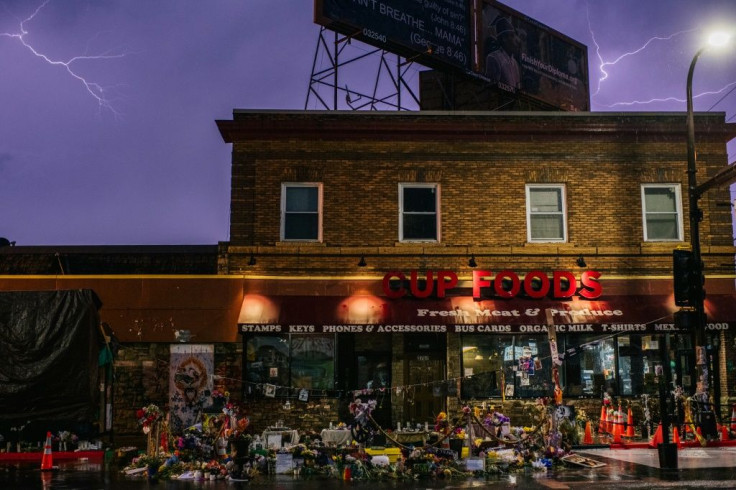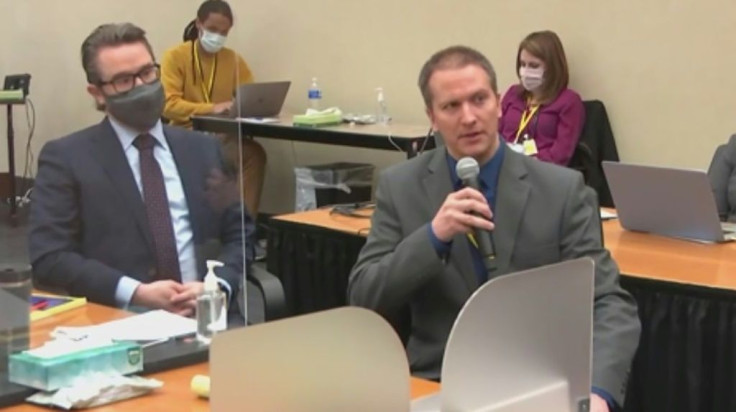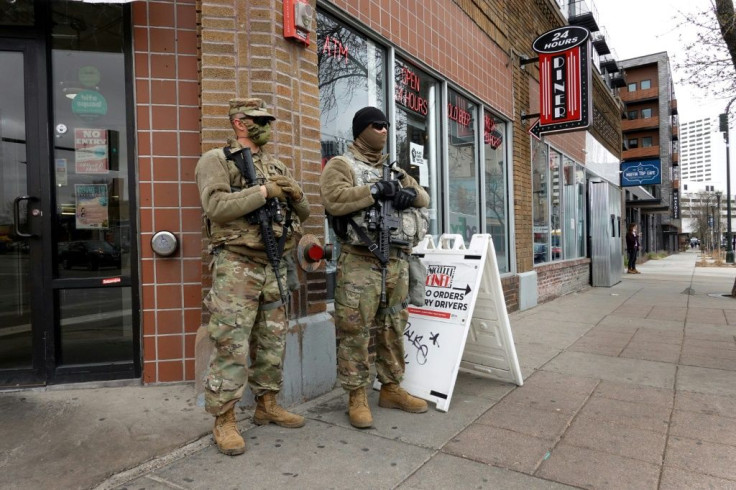Third Week Of George Floyd Murder Trial Features Defense Witnesses
Defense witnesses took the stand during the third week of the trial of Derek Chauvin, the former Minneapolis police officer charged with murdering George Floyd.
Closing arguments are to be held on Monday and the high-profile case will go to the jury.
Here are highlights of the third week of the trial that has riveted the United States:

Chauvin, 45, told Judge Peter Cahill he would exercise his constitutional right against self-incrimination and would not testify.
"I will invoke my Fifth Amendment privilege," Chauvin said.
"Is this your decision not to testify?" the judge asked the former police officer, who was speaking in court for the first time since the trial began .
"It is, your honor," Chauvin said.
Eric Nelson, Chauvin's attorney, asked him if he understood that "neither the state nor the court can comment on your silence as a sign or an indication of your guilt."
Chauvin said he understood.

Fowler, a retired forensic pathologist, was put on the witness stand as a medical expert by Chauvin's defense attorney, Eric Nelson.
Fowler, the former chief medical examiner of the state of Maryland, said Floyd's death was caused by underlying health conditions and illegal drugs -- conclusions that contradicted those of medical experts introduced by the prosecution.
Those experts said the 46-year-old African American died of hypoxia, or a lack of oxygen, while being held facedown and handcuffed on the street with Chauvin's knee on his neck for more than nine minutes.

The South African-born Fowler said Floyd had an enlarged heart and a "significant narrowing of all of his coronary arteries."
He said fentanyl and methamphetamine ingested by Floyd were contributing causes along with "the potential of a carbon monoxide role."
Fowler said Floyd was held down next to the exhaust pipe of a running police car.
Prosecutors called Martin Tobin, a pulmonologist, to rebut Fowler's testimony and he said he had found no evidence of carbon monoxide poisoning.
Brodd, a retired police officer who testified for the defense, said he believed Chauvin's use of force against Floyd was "justified."
"I felt that Derek Chauvin was justified, was acting with objective reasonableness, following Minneapolis Police Department policy and current standards of law enforcement in his interactions with Mr Floyd," Brodd said.
Brodd initially said that pinning Floyd facedown in the street with officers on his back was not a use of force.
But he acknowledged under tough cross-examination from prosecutor Steve Schleicher that it did qualify as a use of force under Minnesota Police Department policies.
Prosecutors put several police officers on the witness stand who testified that Chauvin's use of force against Floyd was excessive and unnecessary.
Chauvin's defense attorney issued subpoenas to the two people who were with Floyd on the day of his May 25, 2020 arrest -- Morries Hall and Shawanda Hill.
Hall, who is suspected of having supplied drugs to Floyd, declined to testify, citing his right not to incriminate himself.
Hill said Floyd had been "happy, normal, talking, alert" that day and then had fallen asleep in his car.
She said she tried to wake him a "couple of times" and he eventually woke up when police arrived in response to a report that Floyd had used a counterfeit $20 bill and pulled him out of his car.
© Copyright AFP {{Year}}. All rights reserved.





















